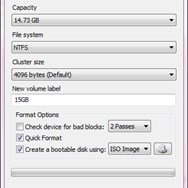MultiBootUSB vs Rufus
Compare features, pricing, and capabilities to find which solution is best for your needs.

MultiBootUSB
MultiBootUSB is a cross-platform tool written in Python that enables users to install multiple live Linux distributions onto a single USB drive without requiring reformatting. It supports various features including persistent storage, UEFI booting, and a command-line interface for advanced users. by Sundar

Rufus
Rufus is a free, open-source utility designed to format and create bootable USB flash drives from various bootable ISOs including operating systems like Windows and Linux. It is known for its speed, ease of use, and comprehensive support for different bootable formats and partition schemes. by Akeo Consulting
Comparison Summary
MultiBootUSB and Rufus are both powerful solutions in their space. MultiBootUSB offers multibootusb is a cross-platform tool written in python that enables users to install multiple live linux distributions onto a single usb drive without requiring reformatting. it supports various features including persistent storage, uefi booting, and a command-line interface for advanced users., while Rufus provides rufus is a free, open-source utility designed to format and create bootable usb flash drives from various bootable isos including operating systems like windows and linux. it is known for its speed, ease of use, and comprehensive support for different bootable formats and partition schemes.. Compare their features and pricing to find the best match for your needs.
Pros & Cons Comparison

MultiBootUSB
Analysis & Comparison
Advantages
Limitations

Rufus
Analysis & Comparison













